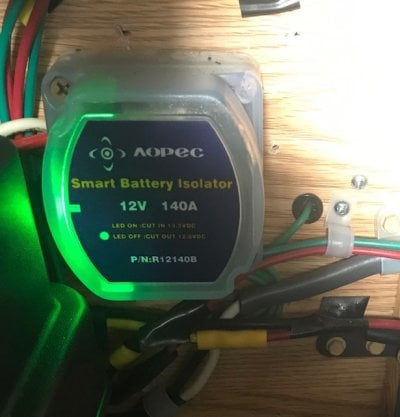Thanks for the input. I realize I could upsize the wires and fuse but that seems to not really address some fundamental problem. Surely not everyone has #4 wire running to their campers.
To answer the questions, this was a standard install by ATC. I did add a Victron SOC monitor myself. This fuse blowing has happened twice now. On most of my trips, the battery SOC goes down to about 80% overnight and I have had no issues with the system getting recharged through the alternator the following day. However, a couple of times the SOC has gone much lower (probably ~60% or below), and the following day I discover that the battery has not charged while driving and the fuse is blown. Thus my thought that the alternator is trying to push too much current through the wires because there is insufficient back-resistance with the battery low (i.e., "inrush" current).
If the inrush current is the problem, would addition of a DC to DC charger provide sufficient back-resistance to keep the inrush down below the level of blowing a fuse? From what I can find on the internet, that seems to be a reasonable solution. And it would allow me to add solar panels at a later time.
FWIW, I called the local Ford dealer after posting this morning, and they seem to know nothing about "smart alternators" (even claimed they had never heard the term before, and this is a guy in the maintenance department). Looking online suggests (but nowhere could I confirm) that all these trucks now have smart alternators that ramp down current when the starter battery is charged up to about 80%. I'm thinking that whether or not I have a smart alternator, having a DC-to-DC brain box would help with keeping the camper battery topped up properly (particularly if it keeps the fuse from blowing!).

